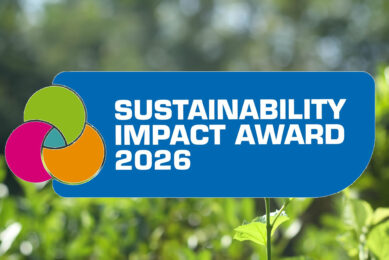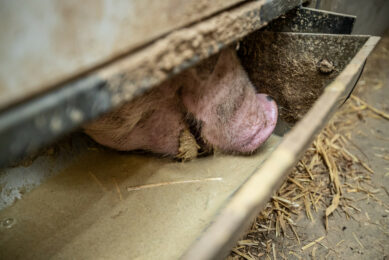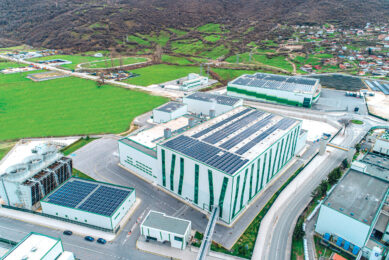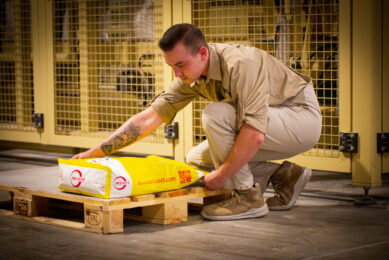Podcast: Improving feed efficiency is sustainable
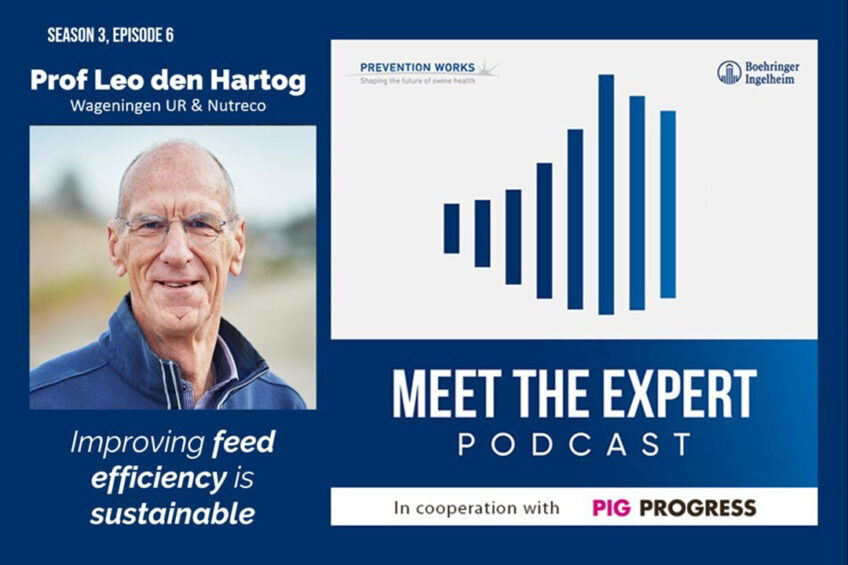
In collaboration with Boehringer Ingelheim, Pig Progress introduces the 6th episode of the 3rd season of this well-known podcast series, ‘Meet the Expert’. This episode focuses on sustainability in improving feed efficiency with Professor Dr Leo den Hartog.
Nearly 45 years ago Den Hartog began his career in animal nutrition and has since worked at universities, in extension services, and for 20 years as R&D director at Nutreco in combination with Wageningen University & Research.
The circular economy
The circular economy, as Den Hartog explains, means producing food within the carrying capacity of the planet, so reusing and recycling waste, co-products, by-products, and materials. Animals, he says, play an important role in reusing (by-products in our food system, biofuels, etc.) and can valourise such by-products and waste products and make highly nutritious food. Animals can also use (and convert) co-products from marginal lands – ruminants can digest roughages from marginal lands, and chickens eat insects.
“Animals play an important role in the circular economy”
Animal nutrition already uses a lot of co-products, for example, potato skins are often used in animal feed, or by-products of beer and cheese. It is important, he says, that we use raw materials for animals that are not used for humans. According to the FAO, 86% of raw materials around the globe are fed to animals, which are not used by humans. “We should go to 100%,” he says.
Feed efficiency
In the coming 3 or 4 decades, we must produce more food than we did in the past 8,000 years. Den Hartog asks 2 important questions:
- Do we have the resources?
- How can we reduce emissions?
While we look at feed conversion ratio, Den Hartog encourages listeners to look rather at feed cost per kg of product. By using co-products, the cost comes down.
On the topic of nutrition, Den Hartog shares his thoughts on the zinc oxide ban and feed additives, and host of the podcast. Pig Progress editor, Vincent ter Beek, asks which feed additive he believes no farm should be without, and also wants to know if Den Hartog feels optimistic about the future of pig production.



